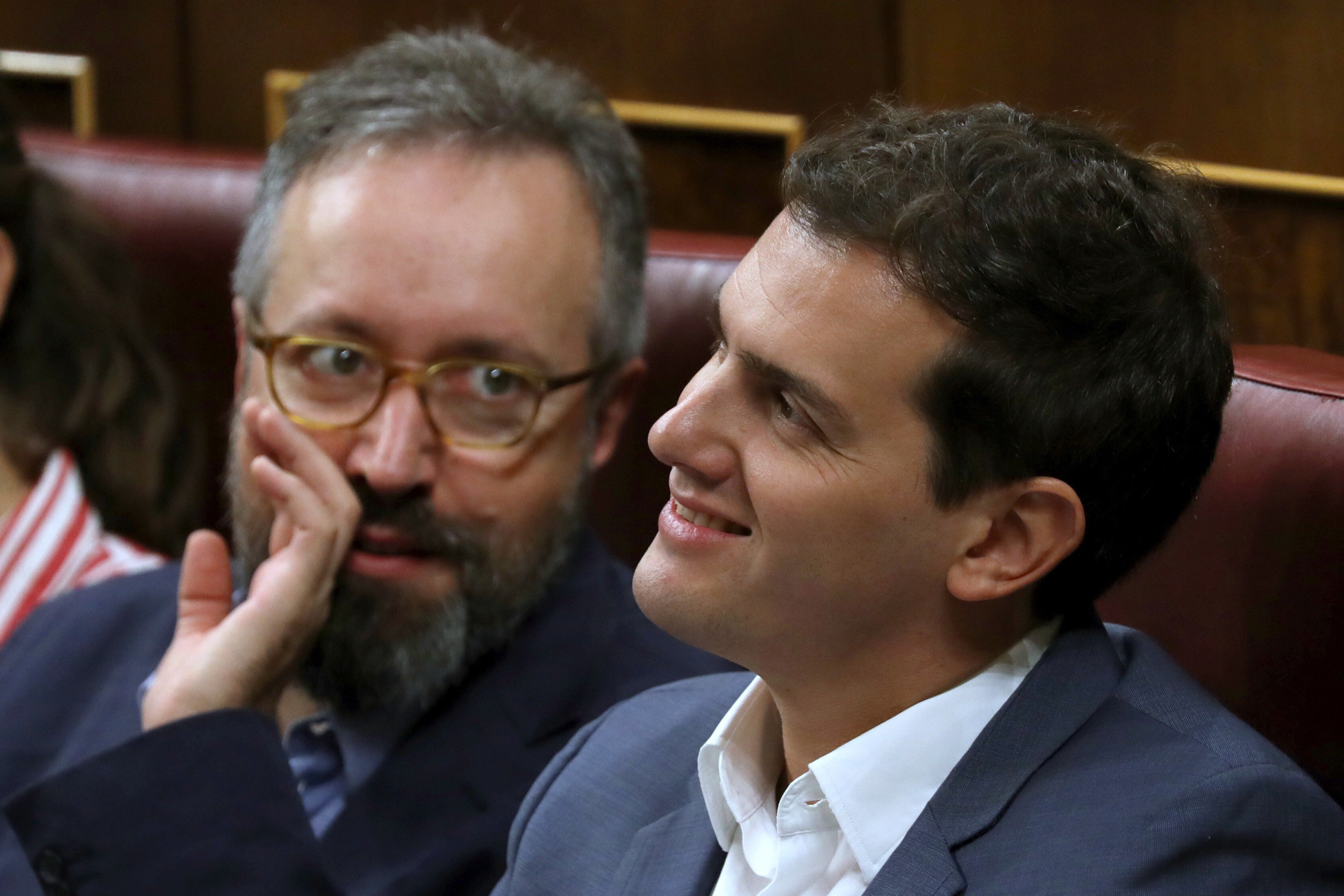Almost a month and a half since the application of article 155, PP (Popular Party), PSOE (Spanish Socialist Workers' Party) and Ciudadanos (Citizens) will ratify a non-legislative proposal drafted by Mariano Rajoy's PP party and debated in the Congress this Tuesday, which opposes the boycott on Catalan products, because of the harm it causes to "Marca España" (Brand Spain). This comes in the middle of criticisms from PSOE and Cs towards the measure's "opportunism", in the middle of the campaign for the 21st December Catalan election, and alongside accusations from other groups that PP has, in recent years, acted as a "arsonist-firefighters" towards Catalonia.
"The irresponsible attitude of the pro-independence parties has harmed the social and economic situation, which is affecting growth and the employment rate in Catalonia and, indirectly, in the rest of Spain. As such, it declares the need to give support to all the products of brand Spain, including Catalan ones, without exercising any discrimination nor any type of boycott towards them" says the bill presented by PP and defended by Lleida (Catalonia) deputy José Ignacio Llorens, who accused the independence process of having "spoiled" the image the rest of Spain would have of Catalonia.
Cs expressed their support for the measure, even though PP didn't accept their amendment about pursuing hate crimes allegedly carried out against people, including businesspeople, who are against independence. As such, Juan Carlos Girauta spoke of the "strategic errors" of the proposal. "If really we want to help and avoid the boycott we shouldn't talk about it," he said. On the other hand, Girauta denounced certain "slogans of ideologues of the [independence] process, like the CUP (Popular Unity Candidacy), saying that one way to avoid the companies leaving would be to nationalise them.
PSOE has criticised PP's management of the independence conflict. "They're the arsonist-firefighter, first they set it on fire and then show up to put out the fire they've created," said José Zaragoza. "Is this an amendment to everything (...) since 2004? It's an act of inept opportunism, as they've presented the same proposal that's in the Senate. They seem to be arguments to incite the boycott," said the Catalan deputy. He presented an amendment for the Health ministry to start a campaign to "raise awareness and inform on the mutual benefits of commerce and exchange of products of different origins".
Unidos Podemos (Together We Can) kept more studiously neutral, criticising both the intervention in Catalan self-government and the unilateral independence moves. "Attacking interests of the Catalan people through the Catalan government for companies to be able to relocate with greater ease is mean-spirited", said Aina Vidal about the royal decree which made it easier for companies to leave, based on a simple decision by their boards of directors, without a shareholders' meeting. "Or do they believe that financial intervention helps for new investment? And the Police's action? [Article] 155 doesn't help either, but makes it worse," she said in justification of their no vote.
Pro-independence Catalan parties, like Basque nationalists, insisted more strongly on the central executive's responsibility.
PDeCAT (Catalan European Democratic Party) deputy Ferran Bel returned to the "arsonist-firefighter" label and the effects of the appeal against the 2005 Catalan Statute of Autonomy on the conflict. ERC (Catalan Republican Left) deputy Gabriel Rufián said that the "boycott" was in reality the PP and called for the release from prison of the "best Economy minister" he believes Catalonia has had, in reference to Oriol Junqueras. He said Junqueras used to pay suppliers in 27 days, unlike the 40 days it took in Spain. EAJ (Basque Nationalist Party) deputy Joseba Andoni Agirretxea, meanwhile, denounced the Spanish government's "hypocrisy" for "having pressured companies to leave" before now presenting this proposal.

